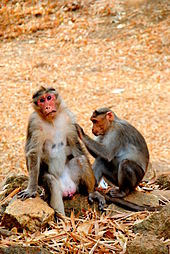Monkey Business - copyright in a photo where the shutter is operated by an animal
Can a monkey own copyright? Clearly not. At least not in England in at any rate for two reasons. First, a photograph is an artistic work (see s.4 (1) (a) of the Copyright Designs and Patents Act 1988 ("CDPA")) and s.1 (1) (a) makes clear that copyright subsists in an artistic work only if it is original. Now the threshold for originality is very high but it does connote independent skill and labour which goes beyond monkeying around with a smart phone button. Even if the monkeying is done by a human being. Indeed even if it is done by a photographer. The other reason is that s.1 (3) provides that
"Copyright does not subsist in a work unless the requirements of this Part with respect to qualification for copyright protection are met (see section 153 and the provisions referred to there)."Well those qualifications relate to nationality, residence and incorporation. Monkeys just don;t meet any of those criteria.
What about the camera or smart phone owner? If the monkey put its paw through a car window and grabs the device which I have seen happen in Gibraltar (where my learned friend Mr David Hughes sometimes hangs out) I don't think there will have been any expenditure of skill or labour and certainly not enough to give the camera owner copyright.
But if you set up the camera and train the monkey as Mr David Slater claims to have done (see "British photographer in Wikipedia monkey selfie row" 7 Aug 2014 BBC website) it may be different, Slater might find some support from the decision of His Honour Judge Birss QC (as he then was) in Temple Island Collections Ltd v New English Teas Ltd and another [2012] EWPCC 1 (12 Jan 2012) (see my note "Copyright in Photographs: Temple Island Collections and Creation Records" 15 Jan 2011).
According to press reports Slater claims to have lost £10,000 from the reproduction of the photo without his permission. That would just bring him within the jurisdiction of the small claims track of the Intellectual Property Enterprise Court (see "The New Small IP Claims Jurisdiction" 5 March 2012) where the amount of costs that one party can recover from another are limited to a few hundred pounds. The procedure is designed for litigants in person and the judge has the same power to grant an injunction at the end of the hearing as any other. If I were Mr Slater I'd be sorely tempted to give it a go.



Comments